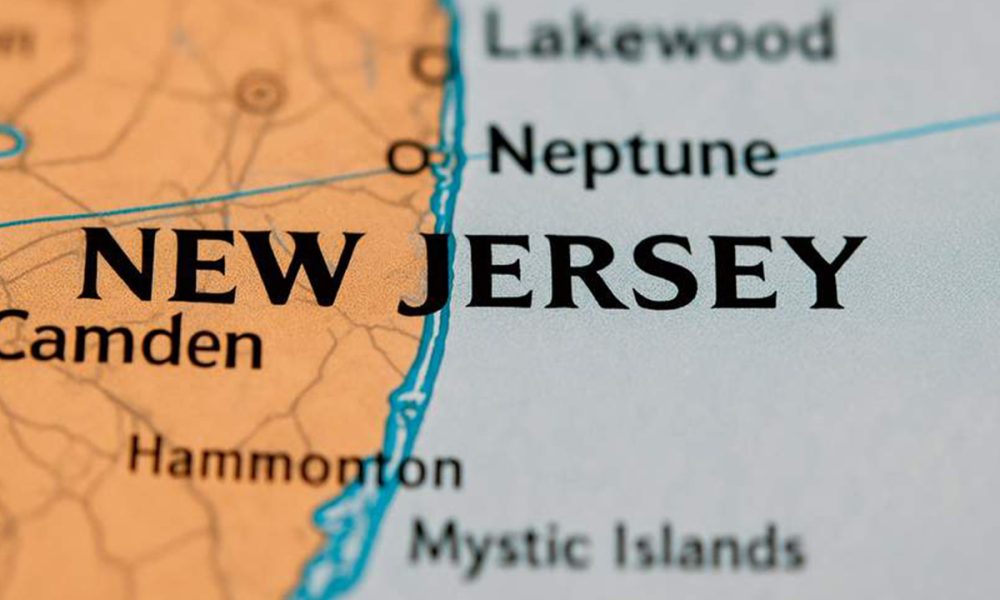

Gambling in the USA
Gaming Americas Weekly Roundup – October 30-November 5
Welcome to our weekly roundup of American gambling news again! Here, we are going through the weekly highlights of the American gambling industry which include the latest news and new partnerships. Read on and get updated.
Latest News
Sandy’s Racing & Gaming, the newest gaming and entertainment location for Eastern Kentucky, opened its doors to visitors. With nearly 700 historical horse racing games, two performance stages and a BetMGM Race & Sportsbook, the 75,000 square-foot facility is unlike anything else in the area.
The PGA Tour announced that it has suspended two players on the Korn Ferry Tour for violating the Integrity Programme. In an emailed statement, the tour said Vince India and Jake Staiano placed bets on PGA Tour competitions, though did not bet on tournaments in which they were participants.
The three Detroit casinos reported $101.6 million in monthly aggregate revenue for the month of September 2023, of which $100 million was generated from table games and slots, and $1.6 million from retail sports betting.
JCM Global has installed its Digital Signage Solutions in the new Caesars Sportsbook at Harrah’s Philadelphia. JCM installed its DSS TV PRO that stretches an amazing 23’ 7” wide and an incredible 13’3” high for an all-encompassing viewing experience like none other. The configuration allows for one large screen playing a single game or for four or six windows, each playing separate sports content, all shown in an astounding 281 trillion colours.
Gaming Laboratories International announced that April Augustine, Director of Marketing, has been named to PR Daily’s Top Women in Marketing Awards List for 2023 in the Tech/Digital Marketers category. Augustine was chosen against a wide pool of nominees to receive recognition in the Tech/Digital Marketers category for her influential work.
Partnerships
BetMGM announced the renewal of its strategic partnership agreement with the Philadelphia 76ers. Under the agreement, BetMGM will continue as an Official Sports Betting Partner of the team. The multi-year extension includes the addition of BetMGM VIP fan experiences and watch parties, in-market odds boosts and increased courtside signage at Wells Fargo Centre.
International Game Technology announced that its subsidiary, IGT Global Solutions Corporation, has extended its two contracts with the Kentucky Lottery Corporation until 2036. Under the terms of the new extensions, IGT will upgrade the Kentucky Lottery’s central system to IGT’s high-performing Aurora platform, deliver new point-of-sale hardware for 3400 lottery retailers across the State and deploy an upgraded iLottery system that includes cloud integration.
Playtech, the world’s leading gambling technology company, has signed a new deal with the premier online gaming company in North America, FanDuel, launching branded Live Casino content on their Canadian platform. The deal is a key milestone for both companies, as FanDuel solidifies its position as a premium provider of online casino experiences and builds its Live Casino offering in Canada and Playtech continues its expansion across North America.
Aegis Brands has announced that St. Louis Bar & Grill has unveiled Wings and Wagers with an exclusive, multi-year partnership with premier Canadian digital sportsbook and casino, Sports Interaction. The innovative partnership marks the first alignment of its kind between a Canadian restaurant chain and a leader in Canadian online betting. St. Louis guests across Ontario can now access customised betting options through the Sports Interaction app.
Gambling in the USA
Gaming Americas Weekly Roundup – August 11-17

Welcome to our weekly roundup of American gambling news again! Here, we are going through the weekly highlights of the American gambling industry which include the latest news and new partnerships. Read on and get updated.
Latest News
AU10TIX announced the launch of a free Child Safety Age Assurance Risk and Readiness Assessment and Age Assurance Readiness Guide designed to help businesses better understand their risk and tailor their strategy to meet regulatory obligations. They support AU10TIX’s Selfie-based Age Estimation service, which delivers the industry’s most precise and unbiased age assessment in just two seconds. In the US, federal legislation such as the Children’s Online Privacy Protection Act (COPPA) requires parental consent for users under 13, while the California Consumer Privacy Act mandates age verification for websites accessed by users under 16. Additionally, 19 U.S. states now enforce mandatory age checks for adult content and gambling platforms. Similar regulations are impacting social media and online services in the UK, EU and Australia.
Caesars Entertainment has launched its third fully in-house developed proprietary online casino title: Signature American Roulette. Now live in New Jersey, the game is available across Caesars Palace Online Casino, Caesars Sportsbook & Casino and Horseshoe Online Casino, bringing another standout addition to the Company’s Signature table game series. Developed by Empire Creative, Signature American Roulette reflects Caesars’ growing investment in building its own proprietary content, a cornerstone of its online casino strategy aimed at delivering a best-in-class player experience. Signature American Roulette follows the recent launches of fan-favourite Signature titles, Caesars Palace Signature Multihand Blackjack Surrender in May and Signature Blackjack Surrender in June, both also developed by Empire Creative.
Novig announced the successful close of an $18 million Series A funding round. The round was led by Forerunner, with participation from existing investors Y Combinator, NFX, Perceptive Ventures and Gaingels. Founded by Jacob Fortinsky and Kelechi Ukah, Novig is reimagining sports predictions as a transparent and fair marketplace. Unlike traditional sportsbooks, Novig allows users to trade directly with one another, rather than against the house, eliminating hidden fees, biased odds and the risk of being penalised for winning.
Partnerships
IGT announced that it has secured a multi-year sports betting technology and services agreement with Hipodromo de Agua Caliente SA de CV and Distribuidora Internacional de Equipos de Juego, S. De R.L. De C.V. that will significantly extend IGT PlaySports’ footprint to Mexico and Latin America via Corporación Caliente. Per the agreement, 42 Caliente sportsbooks in Mexico will leverage the IGT PlaySports platform and services from the Company’s Trading Advisory Services Team. Through a phased rollout, Caliente will also be able to provide select sportsbooks operators throughout Latin America access to IGT PlaySports’ technology, extending the technology’s reach to more than 100 additional venues across eight countries.
CT Interactive has announced a strategic partnership with Ondiss. Through this collaboration, CT Interactive’s top-performing titles are now integrated into the Ondiss platform, significantly expanding the company’s reach within the region’s regulated iGaming market. This integration adds value to the broad Argentine audience of Casino & Hotel Casino Magic S.A., which successfully uses the Ondiss platform. With CT Interactive’s certified and player-favourite content now available, operators on the platform are empowered to diversify their offerings and meet the increasing demand for engaging, high-quality games.
The post Gaming Americas Weekly Roundup – August 11-17 appeared first on European Gaming Industry News.
DraftKings
New Jersey Gambling Revenue Surges in July with Online Casinos Leading Growth

The gambling sector in New Jersey experienced impressive gains in July, hitting a total gaming revenue of $606.2 million. This figure marks an increase of 10.7% compared to July 2024, highlighting continued expansion within the state’s gaming market.
Online Casinos Set New Records with $247 Million Revenue
Online casino platforms played a key role in driving this growth, generating an unprecedented $247.3 million during the month. This amount represents a more than 25% rise from the same period last year and establishes a new monthly high for internet gaming in New Jersey. So far in 2025, online casinos have accumulated $1.63 billion in revenue, a year-over-year increase exceeding 23%. Major operators such as FanDuel, DraftKings, and BetMGM have been instrumental in positioning New Jersey as the leading state for legal online gambling in the US.
FanDuel maintained its position as the top online casino, earning $52 million in July—a 38% increase from the previous year. DraftKings followed with $48.6 million, while BetMGM generated $31.4 million. Additionally, Caesars Palace Online achieved a record $18.7 million, more than 50% above last year’s equivalent month. The fierce competition among these industry leaders has sparked innovation and increased player engagement, contributing to sustained market growth.
Land-based casinos in Atlantic City also experienced a positive month, collectively bringing in $284.1 million, a 4.3% increase compared to July 2024. The Borgata remained the highest-grossing casino with nearly $80 million in revenue, while Ocean Casino Resort recorded the fastest growth at over 18%. Hard Rock Atlantic City also noted gains. However, many of the older casinos continue to lag behind their pre-pandemic results, emphasizing the growing importance of newer venues in the market.
Conversely, sports betting revenue saw a decline. Earnings from bets placed at casinos, racetracks, and online platforms totaled $74.8 million in July, reflecting a 6.6% decrease year-over-year. The total amount wagered reached $664 million for the month, bringing the cumulative sports betting revenue for 2025 to $626.8 million—approximately 4% lower than last year’s figures.
Record-Breaking Year-to-Date Revenue and Tax Contributions
Despite the downturn in sports betting, New Jersey’s overall gambling industry has achieved record-breaking performance during the first seven months of 2025. Combined revenue from all gaming categories reached $3.92 billion, marking the highest year-to-date total on record for the state. In July alone, gambling-related tax revenues amounted to $81.7 million, contributing to a year-to-date total of $446.1 million to New Jersey’s fiscal resources.
The post New Jersey Gambling Revenue Surges in July with Online Casinos Leading Growth appeared first on Gaming and Gambling Industry in the Americas.
DraftKings
The Great Gambling Class Action Wave: A Payout For Lawyers, Not Players

Class action lawsuits in the gambling industry are everywhere, but a closer look reveals a startling truth: They have become a new, industrialized legal business model where the lawyers get paid, but most players see little to nothing.
From DraftKings to sweepstakes casinos, law firms are filing often, promising justice and accountability for operators. The headlines certainly make it sound like players are winning big. We hear of a $155 million settlement against Big Fish Games, a $12 million payment from FanDuel and DraftKings, and a $3.5 million settlement from SpinX Games. Even Coinbase paid $2.25 million over a crypto sweepstakes controversy.
But these numbers tell only half the story. The journey from a lawsuit filing to a meaningful payout is a brutal one for class members, but often a highly profitable one for the legal firms behind the litigation.
The filing frenzy: a numbers game
The class action landscape is a numbers game. While filing a lawsuit might seem straightforward, the journey is not. According to empirical studies, nearly four out of every five lawsuits initially filed as class actions are never actually certified. That’s an 80% failure rate right out of the gate. These cases are often dismissed or revert to individual claims too small to pursue economically.
As John Holden, a law professor at Oklahoma State University, explains, “When you announce that you’re filing a class action lawsuit against DraftKings or a sweepstakes company, you’re at the starter pistol of an ultra marathon.”
This high-volume, high-risk approach is particularly evident in the gambling industry. Multiple class actions against VGW Holdings (the company behind LuckyLand Slots and Chumba Casino) were dismissed, often due to enforceable arbitration clauses that force disputes into individual arbitration, fundamentally undermining the class action’s purpose.
This industrialized approach to litigation — where a law firm files a similar case against different companies dozens of times — is a strategy of volume. The hope is that a few will survive the “significant early filters” of the motion to dismiss and motion for class certification, which the Institute for Legal Reform highlights as key hurdles.
Another issue: making sure people in the “class” want to be part of the whole shebang.
“Class actions do have a number of unique hurdles, such as class certification motions and fairness hearings, that we don’t see in other forms of litigation, but it’s due to the fact that attorneys are hoping to represent individuals who usually haven’t affirmatively opted in to such a representation and will lose the right to sue individually if they don’t opt out of the class,” said Evan Davis, head of the gaming and sports practice at Royer Cooper Cohen Braunfeld LLC. “The court needs to ensure that these individuals are being treated fairly by the court system and that they are receiving an appropriate benefit from the litigation.”
The settlement reality check
Even when cases survive and result in settlements, the outcomes for individual players are often underwhelming. A study of federal court class actions found that in over half of all cases studied, members of the proposed class received zero relief.
When settlements are reached, the gap between the headline amount and what players actually receive is enormous. The Federal Trade Commission (FTC) reported that the median claims rate was just 9% in 2019. For settlements involving over 2.7 million class members, the average claims rate dropped to a mere 1.4%, as reported by Harvard Law professor William B. Rubenstein.
This leaves a significant portion of the settlement pool unclaimed. While the lawyers take a guaranteed, substantial cut — often in the millions — the payouts for individuals are typically modest, often in the double and low triple digits. The low participation rates are due to practical frustrations: Settlement notifications often look like junk mail, and the claim process can be onerous. The extended timeline of class action litigation, which adds “many additional months to your case,” as Holden said, also creates financial pressure that pushes firms toward settlement.
“They take even longer than regular litigation because you’ve got to go find the class, you’ve got to get the class certified,” Holden noted. “So basically you’re having this other legal process play out before you get to the next legal process. You’re adding on many additional months to your case.”
This extended timeline creates financial pressure, especially when facing well-resourced defendants.
“If you were to bring a class action against Google or something, they have infinite money — they can litigate forever if they wanted to,” Holden explained. “Certainly the top tiers of the gambling industry are incredibly well resourced, so efficiency sort of pushes towards settlement for a lot of these.”
As one analysis noted, sweepstakes casino operators “will invariably settle” to avoid a jury trial that could fundamentally dismantle their business models. This creates a cycle where companies pay to continue operating while plaintiffs’ attorneys develop increasingly sophisticated strategies for the next round of litigation.
But settling may be losing some luster, Davis points out.
“Some of the recent gaming-related class actions that have been filed are somewhat unique because they are being brought pursuant to state laws and in some cases limited to individuals within certain states — they are not traditional nationwide class actions like you’d typically see in antitrust or pharmaceutical cases,” Davis said. “This means that a settlement of one case won’t necessarily affect the cases that have been filed alleging violations of other states’ laws, which in turn means that a defendant may be less likely to settle because it will still be incurring significant legal costs in defending the remaining cases.”
The new legal playbook
Gaming companies aren’t sitting idle. The rise of this legal cottage industry has spurred a sophisticated defense playbook that goes well beyond seeking quick settlements. Arbitration clauses have become powerful weapons, forcing disputes into individual arbitration rather than collective lawsuits.
Perhaps the most intriguing development is the increasing use of civil RICO claims. Attorneys are drawing parallels to successful litigation against the opioid industry, alleging that gambling companies use systemic fraudulent practices to foster addiction.
The approach got a boost when Schlesinger Law Offices publicly committed to taking legal action against online sports betting platforms, explicitly drawing parallels to their work against Big Tobacco and stating their intent to pursue companies for “allegedly pushing problem gamblers into debt through deceptive, predatory, and harmful business practices.”
Holden sees these cases as potentially a world apart from typical consumer protection class actions.
“When you see particular individuals associated with them, like a lawyer who litigated tobacco litigation, it triggers that this is perhaps different than some of these other ones that are out there,” he said.
This is a stark contrast to the historical context of gambling litigation, where compulsive gamblers had a “long, unsuccessful history” of lawsuits against the industry. The rapid expansion of online gambling has created new vulnerabilities that this new legal cottage industry is actively exploiting.
The great gambling class action wave is not about to end. As long as the potential for multimillion-dollar legal fees exists, a steady stream of lawsuits from opportunistic lawyers will follow.
For the law firms involved, the odds are in their favor, as this is a high-volume business. But for individual players hoping for significant compensation, the odds remain stubbornly long — much like the games themselves.
Source: sports.yahoo.com
The post The Great Gambling Class Action Wave: A Payout For Lawyers, Not Players appeared first on Gaming and Gambling Industry in the Americas.
-

 gaming3 years ago
gaming3 years agoODIN by 4Players: Immersive, state-of-the-art in-game audio launches into the next generation of gaming
-
EEG iGaming Directory8 years ago
iSoftBet continues to grow with new release Forest Mania
-
News7 years ago
Softbroke collaborates with Asia Live Tech for the expansion of the service line in the igaming market
-
News7 years ago
Super Bowl LIII: NFL Fans Can Bet on the #1 Sportsbook Review Site Betting-Super-Bowl.com, Providing Free Unbiased and Trusted News, Picks and Predictions
-
iGaming Industry8 years ago
Rick Meitzler appointed to the Indian Gaming Magazine Advisory Board for 2018
-
News7 years ago
REVEALED: Top eSports players set to earn $3.2 million in 2019
-
iGaming Industry8 years ago
French Senator raises Loot Boxes to France’s Gambling Regulator
-
News7 years ago
Exclusive Interview with Miklos Handa (Founder of the email marketing solutions, “MailMike.net”), speaker at Vienna International Gaming Expo 2018







